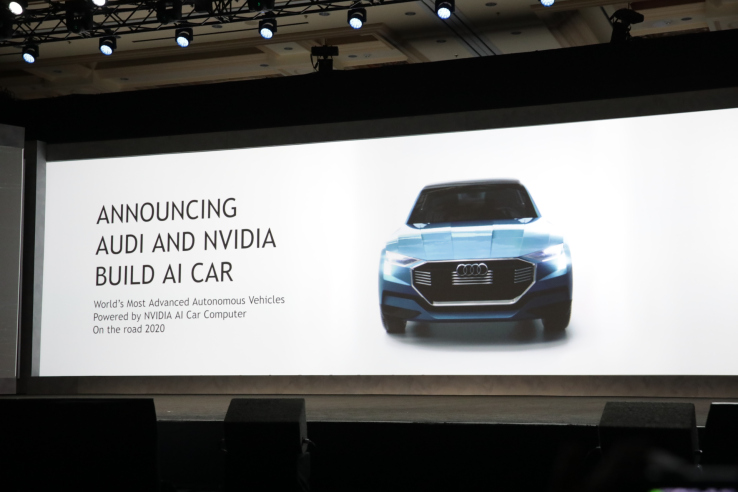

Nvidia announced several new partners for its efforts to bring autonomous cars to public roads in a production capacity today, but the biggest by far was Audi. Nvidia is working with the carmaker to bring its AI driving tech, which is available thanks to its latest in-car autonomous computing hardware and software, to market by 2020.
Nvidia’s partnership with Audi is not entirely new – the companies have been working together for 10 years, though obviously not on autonomous tech for all that time. The Nvidia team up is ambitious, however, in terms of its timeline, with the aim of getting Level 4 autonomy (full self-driving, with manual driving options) available by 2020.
Audi already has an autonomous test car here at CES this year – it’s a Q7 with AI on board that has been trained for only four days, but is already driving itself competently. Nvidia’s pitch with AI in the car is that its deep learning capability can enable this kind of fast ramp; other methods aren’t as likely to generate these kinds of quick leaps in proficiency.
Nvidia CEO Jen-Hsun Huang noted on stage that this self-driving Audi is demonstrating skill “not end of this year, not end of next year – right now,” which is indeed quite a feat for a vehicle with that short of a training period. Most of the test cars in operation at CES have been trained for far longer on their test routes.
The AI system that Nvidia talked about at CES is based on its new Xavier computing platform, which enabled autonomous driving, but also its new AI-based Co-Pilot, which can help with interim levels of autonomy through features including facial recognition and gaze tracking.
This might be the most substantial claim in terms of a firm timeline for delivering highly automated driving, with a roadmap that relies on tested automotive-grade production computing platform, so it is huge news.

